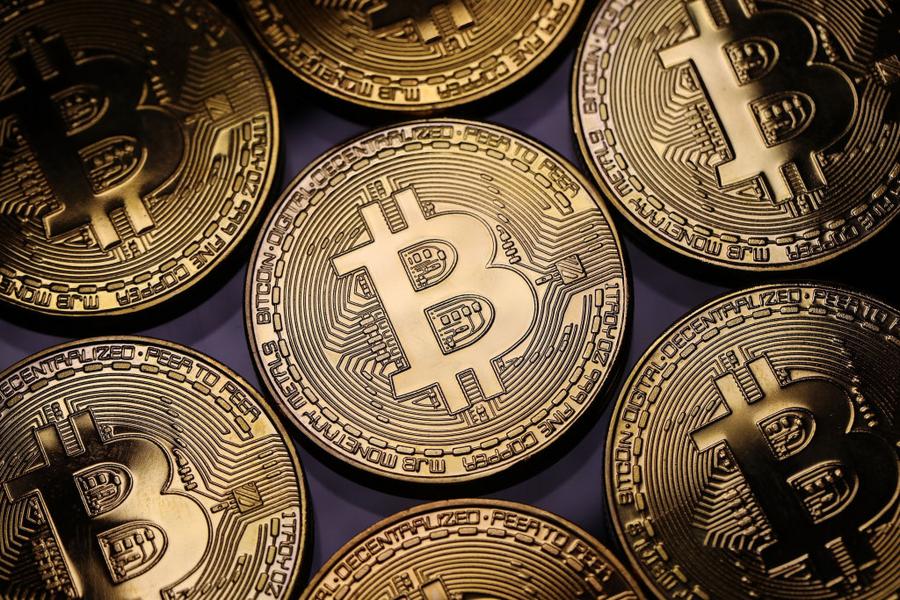Imagine having $220 million that you can only access with an encrypted password you created years ago. Now imagine you don't have any idea what that password is and you only have 10 tries to guess it before that $220 million is lost forever. Talk about stressful! This is the plight of German-born San Franciscan Stefan Thomas. As of this week, his Bitcoin portfolio is worth $220 million and Thomas has no idea what his IronKey, the hard drive that allows him access to his digital wallet of 7,003 Bitcoin, is. He lost the paper he wrote the password for his IronKey on years ago. Thomas has tried eight of his most commonly used password combinations so far with no success.
Thomas isn't the only Bitcoin owner locked out of his account. The unusual way the cryptocurrency encrypts the digital wallets means many people are locked out of their accounts due to lost or forgotten IronKeys. About 20% of the current 18.5 million Bitcoins are in lost or stranded wallets. These wallets are worth about $140 billion.

Photo by Dan Kitwood/Getty Images
Can you imagine the frustration these Bitcoin owners feel knowing they have literally millions of dollars locked up that they cannot access? In many cases, those digital wallets date back to the early days of Bitcoin, when no one really thought the cryptocurrency would take off and be worth anything. Unlike traditional banks like Chase and financial companies like PayPal which can reset a customer's password by verifying information, Bitcoin cannot do that. Bitcoin's mysterious creator Satoshi Nakamoto's main idea about Bitcoin is that it would allow anyone to open a digital bank account that no government could regulate. As such, Bitcoin is run by a network of computers that use a complex algorithm that creates an address and private key known only to the person that created the account. Bitcoin's computers allow the network to confirm passwords to allow transactions without Bitcoin knowing, seeing, or having any access to that password. Basically, this means a Bitcoin account can be created without any sort of identity check. Unfortunately, this system did not take into account how bad a lot of people are at remembering their passwords.
For Stefan Thomas, it's been nine years since he's been locked out of his Bitcoin wallet. In 2011, he was living in Switzerland and was given the 7,002 Bitcoin as payment for making an animated video called "What is Bitcoin?" which introduced the technology to people. At the time, Bitcoin was worth $2. Today it is worth $35,000 per Bitcoin. Within the year, he lost the digital keys to his Bitcoin account. When he first realized he'd lost the password in 2012, he had a few weeks where he felt pretty desperate. Since that time, he's made his peace with it. Of course, it helps that he has other Bitcoin accounts that he does remember the passwords to that have brought him more money than he could have ever hoped. Thomas, a programmer, is the former CTO of cryptocurrency company Ripple, also has an account there filled with that company's XRP currency.
But when it comes to that IronKey he doesn't remember the password to – Thomas isn't giving up. He's stored it in a secure facility and is saving those last two guesses just in case someone develops a way of cracking complex cryptocurrency passwords.
/2017/12/bit.jpg)
/2021/02/GettyImages-1230175365.jpg)
/2017/11/GettyImages-865708300.jpg)
/2017/12/bt2.jpg)
/2017/12/GettyImages-887657558.jpg)
/2021/01/GettyImages-1230175365.jpg)
/2021/12/Claudia-Schiffer.jpg)
/2011/03/Michelle-Trachtenberg.jpg)
/2015/01/GettyImages-151346507.jpg)
:strip_exif()/2020/06/taylor.png)
/2010/05/Carlo-Ancelotti.jpg)
/2012/06/GettyImages-73884432.jpg)
/2009/12/Jimmy-Goldstein.jpg)
/2009/11/Bobby-Brown.jpg)
/2015/04/jh.jpg)
/2016/04/GettyImages-524083760.jpg)
/2018/06/Mike-Lindell.jpg)
/2020/04/hailey-joel.png)
/2013/10/Monty-Hall-1.jpg)
/2014/07/Ana-Ivanovic.jpg)
/2013/11/Louis-Tomlinson.jpg)
/2014/04/GettyImages-55325324.jpg)
/2020/02/guy-fieri-1.jpg)